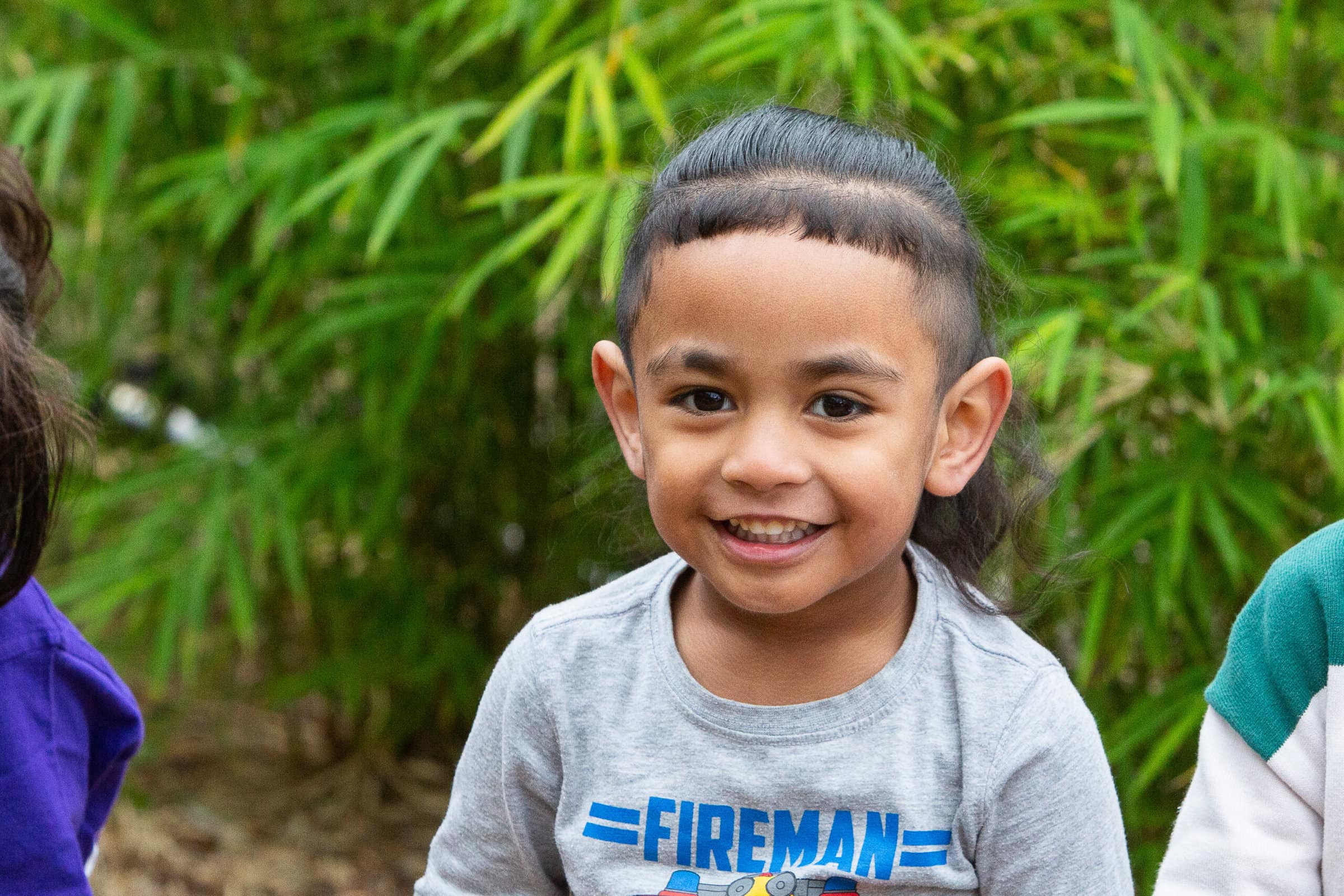Before you know it, your child is starting school! Starting school for the first time is an exciting milestone for your child and family. Preparing your child for the transition to school will prepare them for their future learning and development.
1 - Prepare for the transition
Being school ready isn’t just based on your child’s academic ability, it involves several factors about your child as a whole. Deciding when it’s the right time for your child to start school depends on your child’s age, emotional maturity, language and social skills, physical well-being, and ability to undertake simple tasks independently.
Research suggests that experiences during the transition-to-school time can have long-term impacts on children's resilience and image of themselves as a learner. A successful start to school is linked to future positive school outcomes, both academically and socially.
If your child is attending an early childhood education and care service, speak to the educators about your child’s development and if they believe your child will require additional assistance while transitioning to school.
Here are some tips to help prepare your child to begin school:
- Speak positively and confidently about your child starting and attending school
- Discuss with your child about the change in their daily routine, such as, how they will get to school, what time they will need to get up in the morning and what they will have in their lunch box
- Read books with your child about starting school
- Implement family routines at home that support your child’s learning, such as reading with your child each night
2 - Familiarise your child with the new school
In the months leading up to the transition to school, it is helpful to familiarise your child with the new school environment. Take your child to orientations and visit the school to show them the classroom, playground, bathrooms, sick bay, water fountains and where they will be dropped off and picked up from each day.
Here are some more ideas to help familiarise your child with their new school:
- Explain basic school rules and why rules are important to follow
- Meet the teachers that may be working with your child and speak about them positively to your child
- Tell your child about support systems that the school offers e.g. if there is a buddy system where an older child supports your child in their first year of school
- Be involved in your child’s school community e.g., participating in playgroups, orientation days or other social gatherings like school fetes and welcome barbecues
3 - Ensure you have prepared practical items
Being prepared is an easy way to ease stress for yourself and your child:
- Have your child try on their uniform and shoes before their first day to ensure they fit.
- Have your child practise doing up their shoe laces or buckles.
- Choose a school bag that is comfortable for your child to carry
- Choose a lunchbox and drink bottle that are easy to open and have your child practise opening and closing them
- Ensure your child has enough healthy food for recess and lunch
- Find out if your child requires extra items for school, such as a library bag, pencils, crayons
- Ensure your child’s items are all clearly labelled with their name
4 - Managing feelings and emotions about starting school
Starting school is a big change for a child, each child is different, so it is important to understand how your child is feeling about the change.
Here are some ways you can help your child view the transition positively:
- Speak positively about your child starting school and let them know that you believe they will do well
- Try to arrange playdates or meet up with other children attending the same school as your child so they know another child starting school with them
- Try to make conversation with your child about school
- Speak with your child if they are feeling nervous or worried about the change
- Let them know that it is normal to feel different emotions about something new
- Reassure them that the feelings won’t last forever and that they will do well at school
5 - Support your child once school starts
Once school starts, it is important to continue to support your child during the transition process.
You can help your child settle in comfortably by:
- Saying goodbye confidently and quickly helps them to feel secure and reassured that you trust that they will be okay at school
- Communicate with your child by taking time to tell them what might be happening at school that day, and in the afternoon, ask your child about their day. This is a great way to build confidence and to find out how they are feeling as they settle in. If you have any concerns talk with your child's teacher, who will provide further insight into their day
- Try not to overwhelm your child with extracurricular activities until they adjust to the new routine as some children will tire easily after a day at school
- Helping your child establish friendships by arranging playdates with other children in their class
Helping your child to transition to school will set them up for a positive learning experience. It is important to remember that each child is different and will adjust differently to change. Work with your child to help them view the transition positively. With your support, they will be able to comfortably settle into their new school environment where they will flourish.

